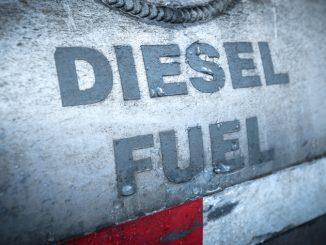
Haulage firms have welcomed plummeting diesel prices in the wake of the Covid-19 pandemic but said the cost saving is nowhere near enough to underpin their struggling businesses.
A stand-off between Russia and OPEC, combined with a global oil surplus as lockdowns drastically cut fuel demand has meant prices are lower than they have been for years.
Last month West Texas Intermediate (WTI) crude oil closed trading at a price of $US-37.63 having recovered from a record low of $US-40.32.
However, according to Alan Braithwaite of the Chartered Institute of Logistics and Transport (CILT), "if your trucks are standing idle, rock-bottom fuel prices are a bit like giving a bald man a hairbrush".
“It’s a small bonus, but not lifesaving in the context of the problems that our members have got”, he told motortransport.co.uk.
"For most, it’s the least of their worries, given staff are out of work and lorries aren't running. Although there are some sectors of the road transport industry that are run off their feet.
"But if it gets going again and the prices stay low, then that will be a help, because margins will be shredded.”
Added Robert Wilcox, MD of Somerset operator Massey Wilcox: “The savings on the fuel will not make up the short fall in turnover, but it helps. Depreciation on the furloughed trucks for instance, delayed taxation, maintenance contracts and HP will all have to be paid for eventually. A partially working fleet will not make up for this.”
Wilcox claimed the crisis would take years to recover from: "Every company will be in a weaker position than it was at the end of February," he said. "Road haulage with its very slim margins does not have the ability to amass cash which is the only commodity that will see companies through this mess."
Christopher Snelling, FTA head of UK Policy said low diesel prices were helping to maintain low costs for the key services, but in general they were "not helping the sector that much".
“There were discussions in the industry about whether we should call for a reduction in fuel duty and we said no, because it wouldn’t help the people who are really in economic trouble here in the sector," he revealed.
Brian Madderson, chairman of the Petrol Retailers Association (PRA), which represents independent fuel retailers, said diesel sales are at least around 60% down on what would be expected and that some motorway operators were reporting a slump of up 75% at the weekend.
However, he also offered a glimmer of hope for potentially lower fuel prices once the crisis eases. “At the moment, prices at the pump are high, relative to the wholesale price. This is because fuel retailers are staying open where possible with sales so seriously reduced and they need to cover the costs of remaining open. We might see prices go down further after Covid-19, because of the world oil glut, if wholesale prices continue low, as the volume of traffic increases and as the cashflow of retailers improves.
“I think it’s possible that they could go below £1 per litre because we are dealing with a world oil glut the like of which none of us have ever seen before.”
Potential good news for operators in rural areas is a proposal from the PRA in conjunction with Experian Catalist, to the government that the Rural Fuel Duty Relief Scheme should be temporarily extended until at least the end of June. Experian Catalist provides fuel and forecourt data and analysis.
If accepted it would apply to all rural fuel stations across the country – it doesn’t at the moment.
As Madderson explained, this would have two benefits: “To make sure that these fuel stations stay open - around 100 PRA members are closed at the moment - and to help consumers, many of whom will be small truck operators in the rural economy, particularly those involved in farm transport, moving animals and feedstock around.
“We have suggested this to the government in a letter to the chancellor. We have told him that we can get this set up within 48 hours and Experian Catalist would do this free of charge.”














